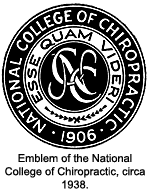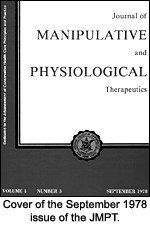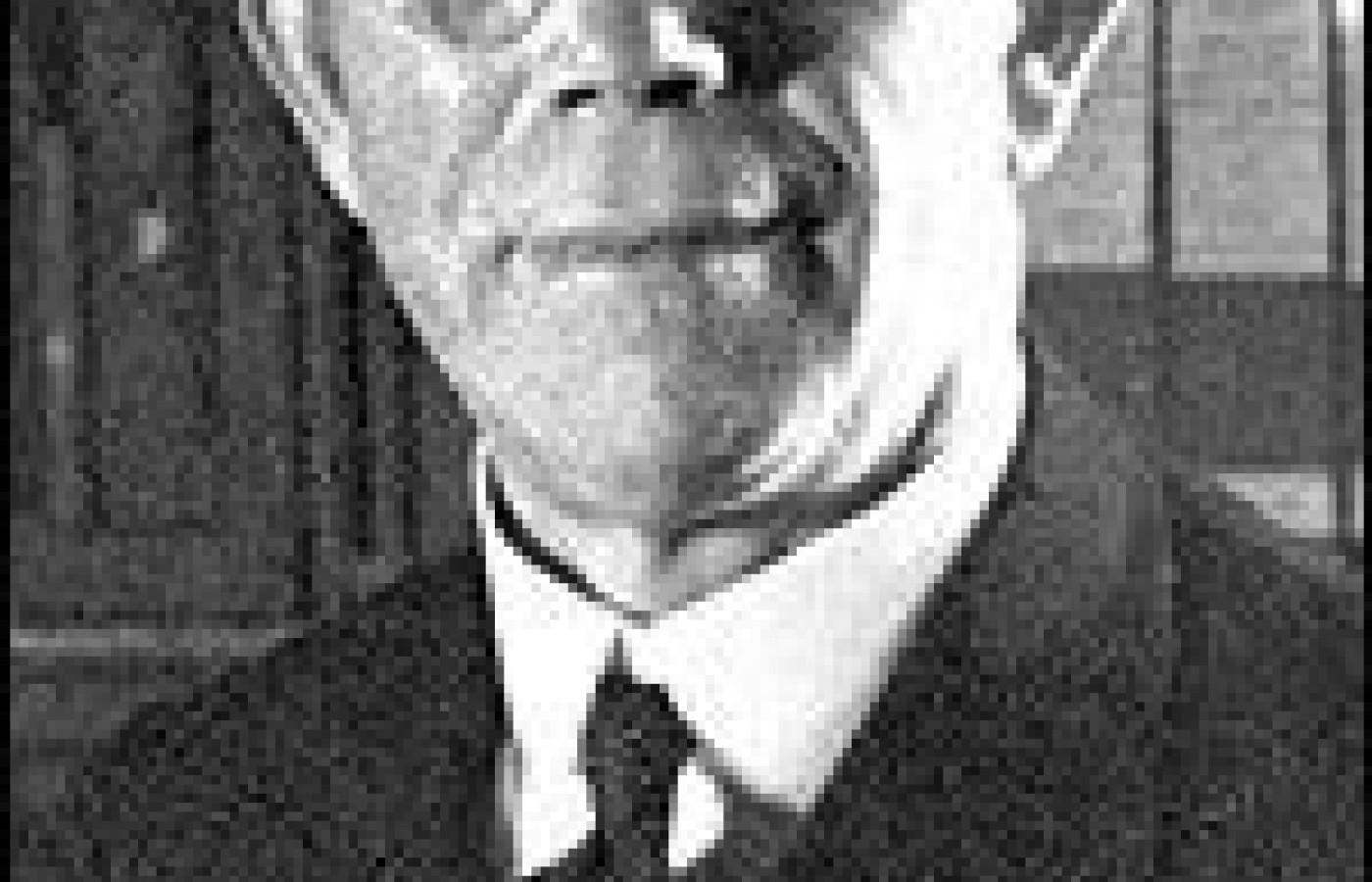It’s a new year and many chiropractors are evaluating what will enhance their respective practices, particularly as it relates to their bottom line. One of the most common questions I get is: “Do I need to be credentialed to bill insurance, and what are the best plans to join?” It’s a loaded question – but one every DC ponders. Whether you're already in-network or pondering whether to join, here's what you need to know.
Esse Quam Videri (Part 2 of 2)
| Editor's note: As noted in part 1, which appeared in the Aug. 14 issue, this paper is based upon a commencement address delivered to the graduating class of the National University of Health Sciences, Dec. 11, 2004. Part 1 is available online at www.chiroweb.com/archives/23/17/11.html. |
by Joseph Keating Jr., PhD
"If It's Rational, It's at the National"
Have you heard that? That was the unofficial motto of your alma mater in the 1920s, the 1930s and the 1940s. While other chiroschools sought a political solution to the basic science laws of that era, the National College offered an educational solution to the legal barrier that political medicine had erected to prevent chiropractors from practicing. The National's answer to the challenge of passing basic science examinations was simple but effective: study basic science, study basic science, and study basic science! And the National was always there to provide higher quality instruction in the basic sciences, not only for its own students and graduates, but also for graduates of a great many other chiropractic schools. Your alma mater often suffered the criticism that it was "too medical," but when it came time to pass the test to get a license, those non-National graduates knew where to turn to make up their educational deficiencies. The National College always was the home of "rational chiropractic" and of the highest educational standards in the profession.
There wasn't much in the way of sophisticated clinical research back in those early days. The randomized, double-blinded, placebo-controlled clinical trial had not yet been invented and would not make its appearance until just before World War II, when penicillin was introduced. And yet if you had thumbed through a copy of the National College Journal of Chiropractic in the 1920s or the 1930s, you would have encountered a number of quality case studies, unlike almost any other chiropractic magazine in those early years. Indeed, your second president, Dr. William Schulze, was an advocate of the "case approach" to clinical training, and he used case studies to teach the students at the National College, as well as at the many postgraduate seminars he offered around the country. Folks, the National was offering case-based clinical education long before the term "problem-based learning" was even invented!




"Esse Quam Videri"
To be, rather than to seem - Joe Janse understood what that means. He grew frustrated with the wider profession's lack of interest in clinical scholarship and its unwillingness to establish a genuine science journal of chiropractic. And so, in the late 1970s, the president of your school committed $100,000 of student tuition dollars to establish the JMPT - and the rest, as they say, is history! Your college's journal is, without question, the pre-eminent forum for presenting and discussing scientific developments in chiropractic health care. The JMPT "set the table" - so to speak - and the rest of the profession is finally asking to sit down. In January 2005, as some of you may already know, the JMPT will become the official science journal of the American Chiropractic Association - distributed free to all ACA members! The JMPT - like the National - is all about substance, rather than appearance: Esse Quam Videri!
So, what does this tradition of substance, rather than appearance, mean for those of you sitting here patiently - about to become graduates of the National? Well, for one thing, it means you have good reason to be proud - not just the chest-thumping, horn-blowing type of bravado, but also the quiet pride that comes from knowing that you have been well-trained by a school that values substance over appearances: Esse Quam Videri.

As I look out into your bright, gleaming faces, I notice - well, actually, I notice that I am curing insomnia in at least some of you - so I'd better bring this to a speedy close. May I just remind you that with that pride comes responsibility; to your patients, to yourselves, to your profession and to your alma mater. That responsibility includes your continuing commitment to the highest clinical, ethical, educational and professional standards. You are National graduates, and you have a tradition of excellence to uphold, a tradition of striving for self-improvement. You stand for excellence; for substance, rather than appearance: Esse Quam Videri!
Congratulations, and good luck to you all - and for those of you who are still conscious, I thank you for your attention.
Joseph Keating Jr., PhD
Phoenix, Arizona
jckeating@aol.com



